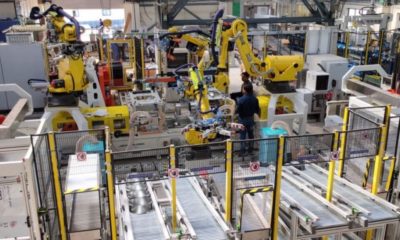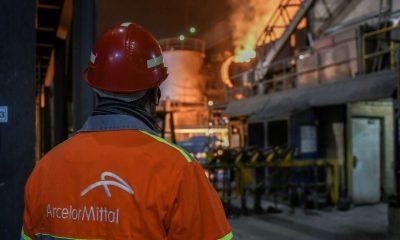Business
End of an Era: Fischer Housing & Engineering Closes After 50 Years in SA’s Shrinking Economy

From 215 employees to 5 and now, none. A Gqeberha-born engineering firm becomes the latest casualty of South Africa’s economic decline.
In what many are calling a sobering reflection of South Africa’s fragile industrial economy, Fischer Housing & Engineering, a Gqeberha-based engineering firm that once thrived in the automotive manufacturing boom, has officially shut its doors.
Founded in 1975 as Fischer Engineering, the company started with just eight people in a modest 400-square metre workshop. It grew rapidly through the 1980s and early 2000s, eventually expanding its footprint to a sprawling 6,400 square metre factory. At its height in 2012, it employed over 215 people—mostly focused on tooling and machine design for South Africa’s once-flourishing automotive sector.
But by the end of June 2025, only five employees remained. The factory fell silent, and with it, yet another small-to-medium enterprise has disappeared from South Africa’s industrial landscape.
From Growth to Retrenchment: The Decline of a Proud Brand
“Most of our customers turned to cheaper imported goods,” the company told the SABC. “That left us with no option but to retrench. We’re down to five people… and there’s no real plan to recover.”
The group said it may attempt to sustain minimal operations through part-time contracts until December, but insiders suggest a complete shutdown is inevitable.
The closure of Fischer Housing & Engineering is deeply symbolic, not just of a single company’s struggle, but of the broader economic decay affecting South Africa’s manufacturing and engineering base.
Why This Closure Matters: The Bigger Picture
Over 623 South African businesses were liquidated between January and May 2025, according to Stats SA, with 85 being forced liquidations. Although the liquidation rate has declined since the Covid-19 peak, experts argue this is not a sign of recovery, rather, it’s an indication that there are fewer businesses left to close.
The South African economy has barely managed 1% GDP growth over the past decade, with 2025 already on track to continue that disappointing trend. With rising imports, infrastructure challenges, and persistent energy constraints, many local manufacturers are losing out to international competitors.
Now, the looming 30% US export tariff—set to kick in this August, is expected to place even more pressure on key sectors like automotive, agriculture, and steel.
A Warning for the Future
The Fischer shutdown comes amid fears that the government isn’t doing enough to shield local businesses from global market shocks or economic policy failures.
“We are watching a slow erosion of South African industry,” said an industry analyst familiar with the company. “Fischer is just the latest in a string of local firms being priced out of relevance. More will follow if strategic trade protection and economic reform aren’t prioritised.”
The closure isn’t just a business story, it’s a community story. For workers in Gqeberha, where job opportunities are scarce and retraining options limited, the loss of a respected employer of 50 years sends shockwaves.
From Workshop to Wreckage
Fischer Housing & Engineering’s journey mirrors that of countless local firms who helped build South Africa’s industrial base post-apartheid, but were gradually squeezed out by cheaper imports, inconsistent policy, and shrinking domestic demand.
Its final chapter may be closing quietly, but it echoes a loud message to government and industry alike: Without decisive intervention, more will fall.
{Source: BusinessTech}
Follow Joburg ETC on Facebook, Twitter , TikTok and Instagram
For more News in Johannesburg, visit joburgetc.com



























